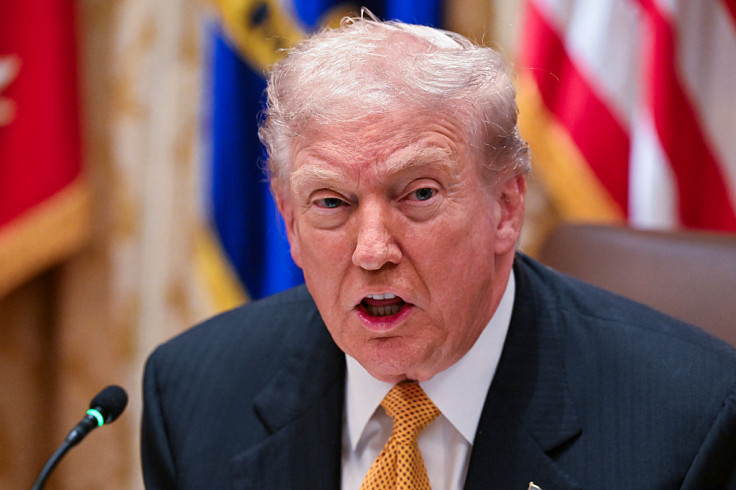
President Donald Trump was reportedly presented with an updated list of targets to strike Venezuela if he were to give the order, according to a new report.
CBS News detailed that senior military officials, including Defense Secretary Pete Hegseth and Dan Caine, the Chairman of the Joint Chiefs of Staff, presented Trump with the options, which include strikes on land. No final decision has been made, the outlet noted.
Earlier this week the Washington Post reported that there are four broad target categories that U.S. planners might prioritize should Trump decide to strike. The first are drug production and transit nodes, including clandestine cocaine labs and large storage sites in states such as Sucre and border zones where drugs are consolidated for shipment. Hitting those nodes could be intended to degrade the financial base of corrupt officials and traffickers.
A second category is small, often improvised airstrips and "parking lots" where light aircraft land to pick up shipments. Apure and the Catatumbo region were singled out as areas where traffickers use makeshift runways and where operations have increased amid recent crackdowns on maritime smuggling. Strikes on those strips would be tactically attractive because they are discrete and directly linked to trafficking networks.
Third are ports and airports that could serve as hubs for cocaine shipments. Defense analysts named commercial seaports and major airports as potential targets if planners decide to disrupt larger-scale shipping and logistics. Any plan to strike such facilities would likely include parallel efforts to neutralize or degrade Venezuelan air defenses first, since even partially operational systems represent a threat to U.S. aircraft.
Fourth are political and security apparatus nodes, including units of the Venezuelan security services. U.S. officials have discussed the possibility of targeting the General Directorate of Military Counterintelligence, known as DGCIM, or other elite security formations if the administration concluded that pressure on the Maduro leadership was the primary goal. That step would carry greater political risk and the possibility of broader confrontation.
Analysts and retired officers cautioned that strikes would have uncertain results. Venezuela retains some advanced air-defense systems and a sizable, if degraded, military. Even so, some experts believe the goal for the U.S. would be precision kinetic operations rather than a full-scale ground invasion, aiming to signal to President Nicolás Maduro and his inner circle that their hold on power is not secure.
At the same time, Venezuelan opposition leader and 2025 Nobel Peace Prize laureate María Corina Machado said that Venezuela is living through "decisive hours," hinting at potential operations.
Speaking remotely at a forum hosted by the IDEA Group — an organization of former Ibero-American presidents — at Miami Dade College, Machado urged Venezuelans and regional leaders to take an active role in the country's political turning point, as Infobae points out. "What is happening in Venezuela is not only a national event; it is a turning point for all of Latin America," she said. "These are decisive hours for Venezuela's destiny."
Machado said she was confident in the strength of the civic movement that backs her. "A united people, like no Venezuelan generation before, is the guarantee of an orderly, peaceful, irreversible transition," she said.
She described the country as being "on the threshold of freedom and an unprecedented transformation," pledging that her government would take control of national institutions "from the first day" to address the humanitarian crisis, ensure transparency in public finances, and begin social and economic reforms.
© 2025 Latin Times. All rights reserved. Do not reproduce without permission.




